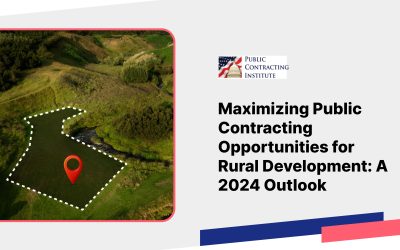At the GAO, Supreme Foodservice (“Supreme”) protested award to ANHAM FZCO (“ANHAM”), of an indefinite-delivery/indefinite-quantity (IDIQ) contract issued by the Defense Logistics Agency (“DLA”) for the supply and distribution of perishable and semi-perishable subsistence products to the military in Afghanistan. The GAO sustained the protest on the grounds that competition was flawed in three ways.
In evaluating proposals, the DLA was supposed to consider which proposal would be the most advantageous to the government, considering price, experience and past performance, distribution system/quality assurance, private convoy security capability, operational support, and socioeconomic considerations. Of the non-price factors, experience/past performance was the most important factor. ANHAM’s proposal was for a lower price, but it also ranked lower technically than Supreme on subfactors within past performance. Finding that Supreme’s slight technical advantages did not justify its 44.3% higher price, the agency determined that ANHAM’s proposal represented the best value to the government and awarded the contract to ANHAM.
First, the GAO concluded that DLA improperly evaluated ANHAM’s experience/past performance in fulfilling contracts of similar size. Rather than examining all of ANHAM’s previous contracts individually to assess required experience, DLA combined the value of ANHAM’s past contracts. However, the solicitation had established a minimum threshold amount for each proposal, and none of the contracts individually met the threshold. Therefore, ANHAM’s rating for experience/past performance was unreasonable.
Second, DLA misevaluated ANHAM’s proposal by failing to consider that ANHAM consistently did not meet a 97% “fill rate” requirement under one of its past contracts. Although ANHAM’s proposal showed that it had not met these contractual obligations, DLA stated that it had reviewed in-house government data to the contrary. Because DLA did not make available the source of this in-house data, GAO held that the agency record failed to reflect the basis of its determination.
Finally, DLA inconsistently evaluated Supreme’s evidence of past performance. DLA considered adverse past performance by Supreme that was outside the solicitation’s stated 12-month window, but then declined to consider any favorable past performance by Supreme that could mitigate the unsatisfactory ratings. GAO found the agency’s inconsistent evaluation of past-performance to be unreasonable.
In sustaining the protest, GAO recommended that DLA reevaluate both Supreme and ANHAM’s proposals in a manner consistent with the solicitation and the GAO’s decision. See Supreme Foodservice GmbH, B-405400.3, October 11, 2012.
PRACTICE TIP: Even the best proposal may be misevaluated by the government. Sometimes a protest is the only path available.

